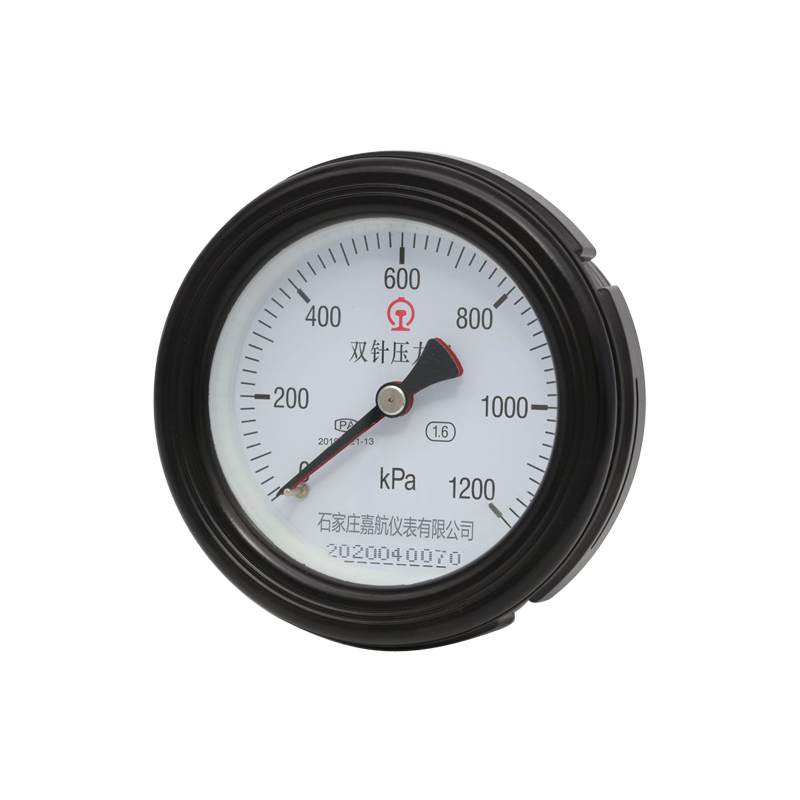
Aug . 07, 2024 01:50 Back to list
Understanding the Function and Applications of Capillary Diaphragm Seal Pressure Gauges in Industry
Capillary Diaphragm Seal Pressure Gauge An Overview
Pressure measurement is a critical aspect of various industrial applications, where accurate and reliable readings are essential for maintaining optimal operations. Among the various devices designed for this purpose, the capillary diaphragm seal pressure gauge is a notable choice, offering unique advantages in challenging environments.
Understanding the Components
A capillary diaphragm seal pressure gauge primarily comprises three main components the diaphragm, the capillary tube, and the pressure gauge itself. The diaphragm, usually made of elastic materials such as elastomers or metals, serves to separate the process fluid from the gauge mechanism. This separation is crucial because it prevents the direct exposure of the pressure sensing element (like Bourdon tubes or piezoresistive sensors) to harsh or corrosive fluids.
The capillary tube connects the diaphragm to the pressure gauge and allows for the transmission of pressure signals. This tube is typically slender and can be extended over long distances, making it particularly useful in setups where the pressure source is located away from the measurement device. The gauge then translates the pressure exerted on the diaphragm into a readable format, often in psi, bar, or other pressure units.
Advantages of Capillary Diaphragm Seal Pressure Gauges
1. Protection from Corrosive Substances One of the most significant advantages of this type of pressure gauge is that it protects sensitive components from corrosive or viscous fluids. By utilizing a diaphragm seal, the gauge is insulated from contamination and damage, ensuring longevity and reliability.
2. Accuracy and Precision These pressure gauges are designed to provide accurate readings even in fluctuating or extreme pressure conditions. The diaphragm's elasticity allows it to respond precisely to changes in pressure, translating these changes into clear readings on the gauge.
capillary diaphragm seal pressure gauge jah

3. Customization Capillary diaphragm seal pressure gauges can be customized for specific applications. They are available in various sizes, materials, and configurations to suit the demands of particular industries, whether in oil and gas, pharmaceuticals, food processing, or other sectors.
4. Remote Measurement The ability to extend the capillary tube allows for remote measurements, which is essential in scenarios where the pressure source is located in hazardous or hard-to-reach areas. This remote capability not only enhances safety but also provides more flexibility in design and installation.
Applications
Capillary diaphragm seal pressure gauges find their applications across numerous industries. In the petrochemical industry, where processes often involve aggressive chemicals, these gauges are indispensable. They ensure that pressure readings are accurate without exposing the gauge to the harmful effects of these substances.
In the food and beverage sector, hygiene and safety are of utmost importance. Diaphragm seals help maintain the integrity of the process by preventing contamination, thereby ensuring compliance with health regulations.
Moreover, in the pharmaceutical industry, where precision manufacturing is critical, the reliability of pressure readings can significantly affect product quality. Thus, using a capillary diaphragm seal pressure gauge can be paramount in maintaining stringent quality standards.
Conclusion
In summary, capillary diaphragm seal pressure gauges serve as a vital tool across various industries requiring accurate pressure measurements. Their robust design, combined with the ability to withstand harsh conditions and prevent contamination, makes them an indispensable component in modern industrial processes. As technology continues to evolve, these gauges will likely adapt and innovate to meet the ever-changing demands of industrial applications, ensuring safe and effective operations.
-
High-Precision Mass Diaphragm Pressure Gauge - Reliable & Durable Solutions
NewsJun.10,2025
-
Explain Diaphragm Pressure Gauge Expert Guide, Top Manufacturers & Quotes
NewsJun.10,2025
-
Affordable Differential Pressure Gauge Prices in China Top Manufacturers
NewsJun.10,2025
-
Reliable Water Fire Extinguisher Pressure Gauges for Safety
NewsJun.10,2025
-
Durable Diaphragm Protection Pressure Gauges Get Quote
NewsJun.09,2025
-
WIKA Differential Pressure Gauge with Switch Reliable Monitoring & Control
NewsJun.09,2025
